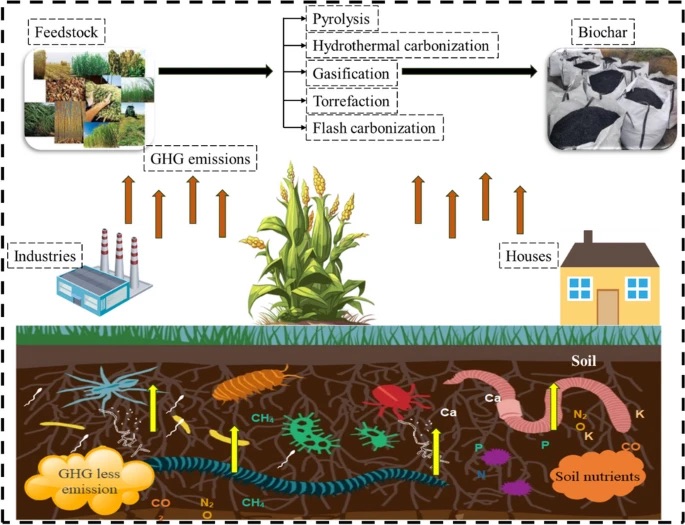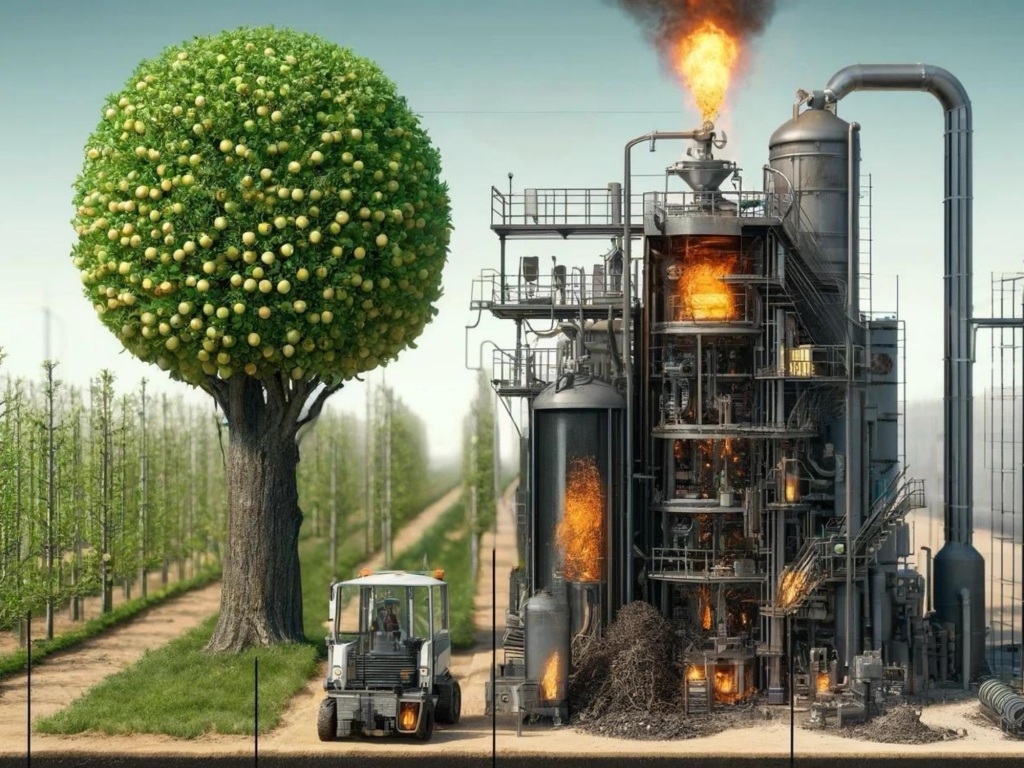
Biochar shows promise for reducing greenhouse gas (GHG) emissions in agriculture. This comprehensive review examines how biochar can mitigate GHG emissions from agricultural soils and discusses sustainable production methods and innovative technologies aimed at combating climate change.
The review focuses on biochar’s influence on soil quality, carbon storage, microbial activity, and GHG emissions. It identifies gaps in previous research and emphasizes the need for detailed studies on biochar soil management to reduce global warming, given agriculture’s significant contribution to global emissions. A key point is the necessity of integrating GHG emission data with computer analyses to understand their warming potentials and the importance of aging studies in biochar production.
The review stresses the need to distinguish between changes caused by biochar and inherent soil characteristics. It advocates for effective GHG emission-reducing management techniques and the development of methods to track and monitor carbon storage locations, trace carbon dioxide origins, and assess biochar’s impact on soil ecosystem GHG flow.
To achieve significant GHG emission reductions, the review suggests a thorough analysis of biochar generation dynamics and related processes to understand their long-term effects. By promoting sustainable practices in soil and agriculture, this review aims to assist provincial and federal governments in meeting their carbon reduction targets as outlined in the Paris Agreement.






Leave a comment